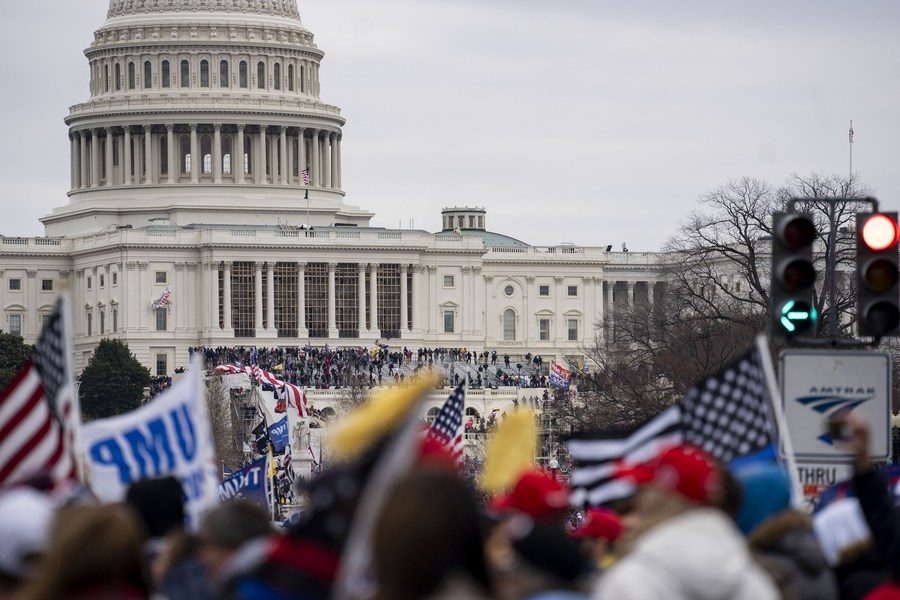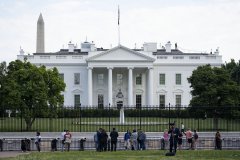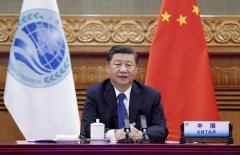On Jan. 6, a violent demonstration stormed U.S. capital Washington. Some protesters ran into the U.S. Capitol building and clashed with security officers. The conflict left four protesters dead, and a U.S. Capitol police officer lost his life, too. It also blocked a session to certify President-elect Joe Biden's victory in the 2020 election.
This is a major failure of the U.S. political system.
Praising itself as a lighthouse country for democracy, the U.S. has always been acting as a role model in practicing democracy. It made up numerous myths of American democracy and is trying everything to sell them to other countries, even by force. However, the Capitol chaos this time laid bare the American democracy, proving the U.S. is not a Garden of Eden for democracy. The U.S. democracy has its flaws at the fundamental level.

Supporters of U.S. President Donald Trump gather near the U.S. Capitol building in Washington, D.C., the United States, Jan. 6, 2021. (Xinhua/Liu Jie)
The U.S. democracy is not able to guarantee a peaceful transition of power. One of the myths built by American democracy is that elections can avoid intensive conflicts and civil wars caused by power struggles and thus ensure smooth transition of power. That's why the U.S. is always fanning up the superiority of its regular renewing of administrations and requesting others to follow. Whenever a problem of power transition occurs to a country, the U.S. attributes it to the lack of an American-style election. However, many followers of U.S. democracy always had conflicts and civil wars, and the U.S. was either turning a blind eye to them or just declaring that they were not learning the essence. Today, the reality show of the Capitol chaos, which was broadcasted live to the globe, proved that elections cannot always guarantee the smooth and peaceful transition of power.
The U.S. democracy failed to maintain political stability. The U.S. believes elections offer the most stable foundation of legality and effectively make modern countries rightful, which ensures long-term security and stability. This is completely a lie. Since the end of the World War II, especial the Cold War, many countries copied American democracy and implanted American election system. However, this set them into a vicious circle of political instability. In recent years, the U.S. witnessed severer political conflicts, and was swept by anti-racism demonstrations and campaigns. High-ranking officials of the Uncle Sam come and go, and the impeachment against the president was approved by the House of Representatives. The 2020 U.S. election failed to bring stability, but in turn triggered a bigger political turmoil.
The U.S. democracy failed to offer effective governance. The country always stresses that only regular elections can realize effective governance, saying the candidates must be responsible for the voters, and the tenure system and division of rights can prevent major wrong decisions. However, this has no basis. For instance, the U.S. democracy didn't stop the White House from launching the Vietnam war and Iraqi war, both of which were major wrong decisions.
In addition, the poor performance of the U.S. governance in handling the COVID-19 pandemic further proved that American democracy is not able to bring effective governance.
Since the outbreak of COVID-19, some U.S. politicians, being irresponsible for the lives of the people and ignoring science, didn't take any active approach to cope with the virus. As a result, the pandemic further spread and became a major failure. According to statistics from Johns Hopkins University, the U.S. topped 22 million COVID-19 confirmed cases as of Jan. 10, and the death toll hit 371,862. The U.S. only accounts for less than 5 percent of the world's population, but its confirmed cases of COVID-19 take as much as 24 percent of the world's total. Its COVID-19 deaths also possess a 19-percent share in the world, much higher than the global average. What's ironic is that no American official has been dismissed due to poor containment performance. The failure of U.S. COVID-19 control has torn up the Emperor's New Clothes of the U.S. democracy, and revealed the incapability of U.S. politics and governance.
The U.S. democracy is not able to guarantee effective political participation of citizens. The White House declares that the American democracy can involve every of its citizens into the political progress and make them express their appeals. However, money politics is standing in the way, running through all links of the U.S. election, legislation and administration.
Elections have become a cash game in the U.S., in which money decides votes. The presidential election is spending more and more money, from $700 million in 2004 to $1 billion in 2008, and to $2 billion in 2012 and $6.6 billion in 2016. According to U.S. nonpartisan research group Center for Responsive Politics, the cost of the 2020 election was close to $14 billion, twice the amount in 2016, making it the most expensive political election ever in American history.
Besides, the midterm elections are also seeing rocketing prices, from $2.18 billion in 2002 to $5.2 billion in 2018. In the 2018 midterm election, it took an average of $19.4 million to win a seat in the Senate, while the price for a House of Representatives seat stood at $1.5 million. The high cost significantly raised the threshold for elections, killing the possibilities for the majority to run an election. Just a few of the people who can raise substantial funds are qualified to join American elections. This is no doubt a breeding ground for the rich and interest groups to cajole the candidates. As a result, political participation is a privilege of the rich.
The U.S. democracy can't guarantee equal political rights and interests for citizens. The American democracy has built a myth of a so-called "majority ruling," saying the "one man one vote" democracy is a way to govern the country at the will of the majority. However, the American democracy is nether the rule of the people nor the rule of the majority. Voter turnout is generally low in each election. The U.S. implements an electoral college system, which means the candidate who receives the most votes may not be elected as the president. In the 21st century, there have been two U.S. Presidents who didn't win the popular vote.
According to the U.S. political system, each state gets two senators, regardless of population. In this way, a senator can be elected by only 500,000 citizens in Rhode Island, while nearly 20 million are needed in California. This indicates that votes don't have the same value. In a word, the U.S. election mechanism cannot guarantee the political interests and rights of the American citizens, and elections are just a tool of the few to manipulate politics.
(Li Yunlong is a professor with the Party School of the Central Committee of the Communist Party of China, or the Chinese Academy of Governance)











